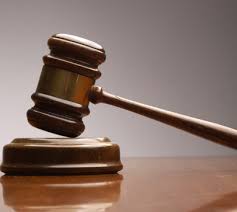Bombay High Court Quashes SC/ST Act Case
Current Affairs NationalPosted by newadmin on 2025-02-03 09:00:51 |
Share: Facebook | Twitter | Whatsapp | Linkedin Visits: 29

The Bombay High Court has quashed a case filed under the Scheduled Caste and Scheduled Tribes (Prevention of Atrocities) Act, 1989, ruling that the alleged offences did not occur in “public view,” which is a crucial requirement for prosecution under the Act. This judgement highlights the importance of meeting specific legal conditions for charges under the SC/ST Act to be upheld.
Enacted to prevent atrocities against Scheduled Castes and Scheduled Tribes, the SC/ST Act aims to protect these communities from discrimination and violence. The law defines specific offences and corresponding punishments, with key provisions stating that acts of insult or intimidation must occur in public view to be prosecutable.
In the case of Afshamaskar Laikhkan Pathan vs State of Maharashtra, the complainant alleged assault and casteist abuse following a failed relationship, leading to the filing of a First Information Report (FIR) under Sections 3(1)(r) and 3(1)(s) of the SC/ST Act. These sections require that the offences be committed in a public setting and be witnessed by uninvolved individuals. However, the complainant’s allegations lacked corroboration from any witnesses.
The Bombay High Court, led by Justices Vibha Kankanwadi and Rohit Joshi, ruled that mere insults or intimidation do not constitute an offence under the Act unless they occur in public view. The court cited a previous Supreme Court ruling that emphasized the necessity of independent witnesses to validate such claims. The absence of supporting evidence led to the quashing of charges under the SC/ST Act, though other charges remained.
A similar interpretation was seen in Shivalingappa B Kerakalamatti vs State of Karnataka, where the Karnataka High Court ruled in September 2023 that the complainant’s allegations of assault and caste-based abuse did not meet the criteria for prosecution under the SC/ST Act since the incident did not occur in a public place or in public view. This ruling reaffirmed the necessity of third-party witnesses for offences to be prosecuted under the Act.
The Supreme Court has consistently interpreted the requirement of “public view” in multiple cases, maintaining that for charges under the SC/ST Act to be valid, the alleged offences must take place in a setting where they can be observed by others. This interpretation has led to the dismissal of several cases where the conditions outlined in the Act were not met.
Search
Categories
Recent News
- Jemimah's Journey: Reflecting on Recent Growth and Success
- Cricket Diplomacy Falters: Pakistan's Costly Decision to Boycott India
- Trump's Deportation Drive: 700 Fewer Agents, But Minneapolis Still Under Watch
- Bus Inferno on Nandyal Highway Claims Three Lives
- Looming Financial Crisis for PCB: The Cost of Forfeiting the India Match
- Uncovering the Explosive Truth: Police Raid and Imminent Demolition
- Red Flag Rally: CPI(M) Andhra Pradesh Conference Combats Communalism
- Looming Financial Crisis for PCB: The Cost of a Boycott
Popular News
- Navigating IPO Market Dynamics Amid Volatility and Regulatory Changes
- Massive Worldwide Microsoft Outage Disrupts Multiple Sectors
- Panjapur Bus Stand to Reshape TNSTC Routes
- తెలుగుదేశం పార్టీ - పేదరికాన్ని నిర్మూలించడంలో వాగ్దానం
- Universities Embrace Remote Learning Technologies Amidst Ongoing Pandemic